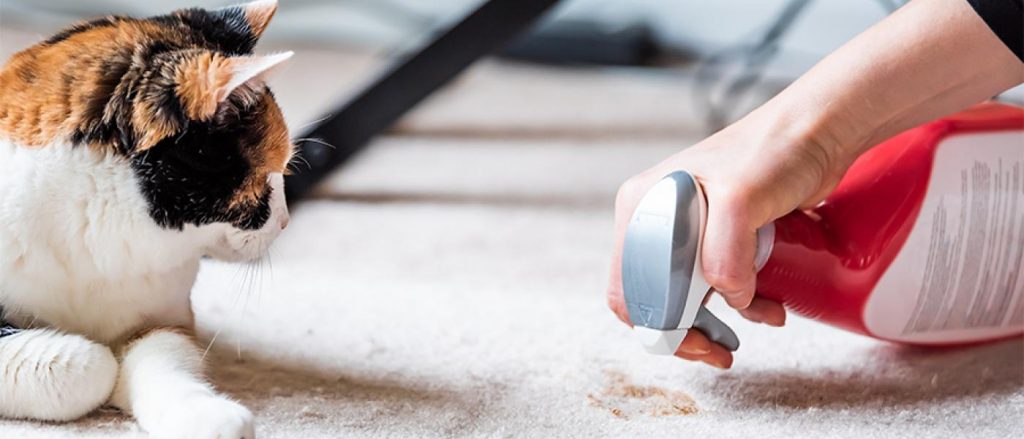Why Your Cat Has a Sensitive Stomach (And Foods That Will Help)

Our cats fill us with pure joy, but some of the ingredients in their food may be filling them with anything but. Cats with sensitive stomachs may have allergies or food intolerances that develop over time from giving them the same foods and ingredients. And some foods may be too rich for kitties who are prone to vomiting after eating.
Some breeds of cats are at a higher risk for allergies and sensitivities than others. Your cat may be experiencing a mix of inhalant allergies alongside their food allergies. For instance, Siamese cats or Siamese crosses are genetically at higher risk for developing food allergies.
Symptoms of Food Allergies in Cats
So what does a food allergy in cats look like? Well, food allergies often result in things like over-grooming, chronic itching and other skin issues. Your cat may groom so heavily that they break the skin or even tear their own fur out.
Symptoms of Food Intolerance in Cats
A food intolerance looks a little different; it will often result in the regurgitation of the food and/ or having diarrhea. A food intolerance may present with a cat vomiting after eating. (Always seek a veterinarian’s diagnosis if your cat is experiencing new or extreme symptoms of any kind)
If you’ve noticed your cat has a sensitive stomach or other potential allergy or intolerance symptoms and you’d like to get to the bottom of it, taking a look at their diet is the first place to start.
Let’s get into what are considered the top 5 foods that are most-often the causes of allergies in cats.
Some of the most common food allergies in cats include:
- Beef
- Chicken
- Fish
- Dairy
- Eggs
(some preservatives or additives may also trigger allergic reactions)
These are extremely common ingredients which is unfortunately why they are also common allergens. It is important to give your cat a balanced diet with some variety. Giving them both wet and dry food, as well as keeping some kind of rotation of proteins will help them to avoid developing these allergies.
Cats may experience allergies in food that go hand-in-hand with environmental allergies such as seasonal pollen, so it can be pertinent that you determine the exact cause of your cat’s symptoms.
Elimination diet
Figuring out what ingredients are triggering your cat’s reactions can be done through a process of elimination by feeding your cat a new diet that does not include any proteins that they would have had previously. Once you’ve determined the exact cause and have found a diet that seems to work and resolves the symptoms that your cat is experiencing, you want to keep them on that diet for around 6 to 8 weeks in order to ensure symptoms do not come back and that no new symptoms arise. Be sure to work closely with your veterinarian during this time.
Quality makes a difference
If your cat has a sensitive stomach, it’s important to feed them high quality ingredients that are made from whole meats or novel proteins, as well as the right balance of vitamins and minerals through things like vegetables or whole grains. Also, be sure to choose a brand that does not add unnecessary fillers or preservatives to their cat foods as those can trigger sensitivities.
In Wellness cat foods, we use high-quality, real ingredients, and let you know exactly what is going into every bite. A proper diet can help improve the function of your cat’s digestive tract, along with their quality of life.
If you have a cat with a sensitive stomach, here are a few of our top food suggestions:
Go chicken free
If your cat has a chicken allergy or intolerance, the Wellness Complete Health Grain Free Indoor: Salmon & Herring dry food is a great option as it is entirely chicken free.
Try turkey
If your cat seems to have a problem digesting their current food, our Complete Health Pâté Turkey is highly recommended. Turkey tends to be easier on the stomach and the solid, smooth pate texture may settle more easily than something with gravy or chunks.
Opt for lower fat food options
Similarly, our CORE Pâté Indoor Chicken & Chicken Liver has lower fat levels which makes it easier for your cat to digest. This may also be especially beneficial to indoor cats who may be putting on weight from a higher fat content in their current regiment.
Feeding your cat with quality ingredients and making sure that their diet is well-rounded can be the key to helping your cat with a sensitive stomach get back to a happy and healthy journey. Our cats mean the world to us, so it is important for us to feed them a world of different foods.




